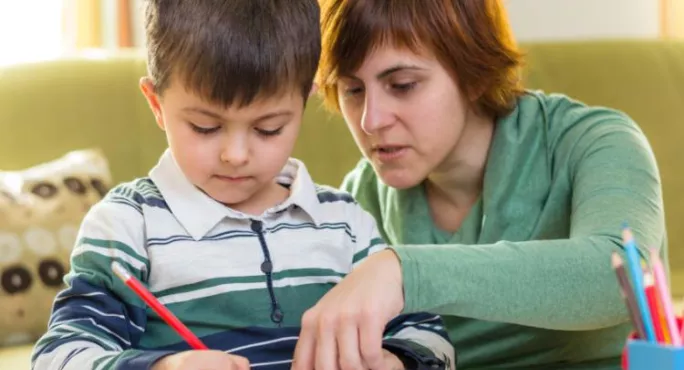- Home
- EYFS: how we tackled the 5 key Covid-19 challenges
EYFS: how we tackled the 5 key Covid-19 challenges

It has been four weeks now since we reopened our doors to children in early years foundation stage (EYFS). Overall, it feels good to be back with the children and seeing them so happy to return is rewarding. But it hasn’t been easy.
It has taken a huge amount of preparation to get to this point and there are many things that we have had to learn along the way. In EYFS, we face challenges that are quite specific due to the unique way in which we teach.
Read more:
- My first day back in EYFS post-Covid 19
- How we adapted to lockdown teaching in EYFS
- Using online journals in Early Years
So, what are the difficulties and, more importantly, what have we done to overcome them?
1. The ‘non-continuous’ provision
I could hear the guilt in my colleague’s voice on the first day as she broke the news: “discovery time” would be no more.
Children gazed around the room at the cloth-covered furniture looking confused.
We really worried about how the children would cope with such a barren learning environment, but it has increasingly been clear that less is more.
We have adapted our physical environment by covering up a lot of the self-access resources. As a result, we needed to offer more structure in the day: there are more adult-led tasks in order to manage the resources that we use.
We still give the children some free choice, but it is on a much smaller scale.
For example, they may have a choice of two or three play activities rather than completely free access.
We have been surprised by how well the children have coped with it and in some ways they are more creative with less.
2. Social distancing
The Early Years guidance recognises that social distancing is not really possible with very young children, but even the “avoidance of mixing and minimal contact” is pretty impossible.
Why we should never tell a child to be ‘neat’ in EYFS and KS1
We have had some success with more structured parts of the day, such as story time where we mark spots on the carpet to space the children out. We also found that planning for play to be less collaborative works. For example, we set up Lego play in smaller individual boxes, which are well spaced out.
Of course, we can only go so far with this, and children do have an innate drive to be close to others. They are like magnets!
So, we are trying with this, but honestly? Let’s just say we are doing our best.
3. Scheduled snack times
Although we love our snack café, it would have been really difficult to manage to comply with the guidance if we had kept it - so we have decided not to offer it at all.
Instead, we schedule a snack time. This is managed in small groups as part of the routine. The children are spaced out and bring their snacks from home.
During this time, we promote independent skills to reduce contact between staff and children. Typically, they need help opening packaging, so we set up a scissor station. The children have become really good at finding the scissors to snip open their packets.
4. Providing nurture
Providing nurture is such an integral part of working with young children. We know that they might get upset or fall over because it is so common with the age group.
This is something that we discussed early on as a team. We struggled a lot with the question “How will we offer comfort to an upset child?”
Fortunately, the majority of the children returning have been pretty settled in the mornings because by this point in the year they are familiar with their teachers and environment. However, there have been a few that wobble in the mornings, or graze their knees, or need a change of clothes.
We all feel strongly that children shouldn’t be left distressed. To tackle the issue, we have been proactive in identifying children who find separation in the mornings difficult. We talk to their parents and seek verbal consent to hold their hand or give them a hug when needed.
5. Transition
During the summer months, we would usually be really busy with transition events for new children starting school. None of this has been possible in the current circumstances.
Our approach is to adapt, rather than cancel transition events, so this is what we have done so far.
- Created a virtual tour of the Reception classes.
- Produced a starting school “ebook”.
- Adapted a PowerPoint presentation for Parents (adding audio slides).
- Scheduled video calls in place of home visits.
- Planned a garden “Stay & Play” for new children.
Keep reading for just £1 per month
You've reached your limit of free articles this month. Subscribe for £1 per month for three months and get:
- Unlimited access to all Tes magazine content
- Exclusive subscriber-only stories
- Award-winning email newsletters



